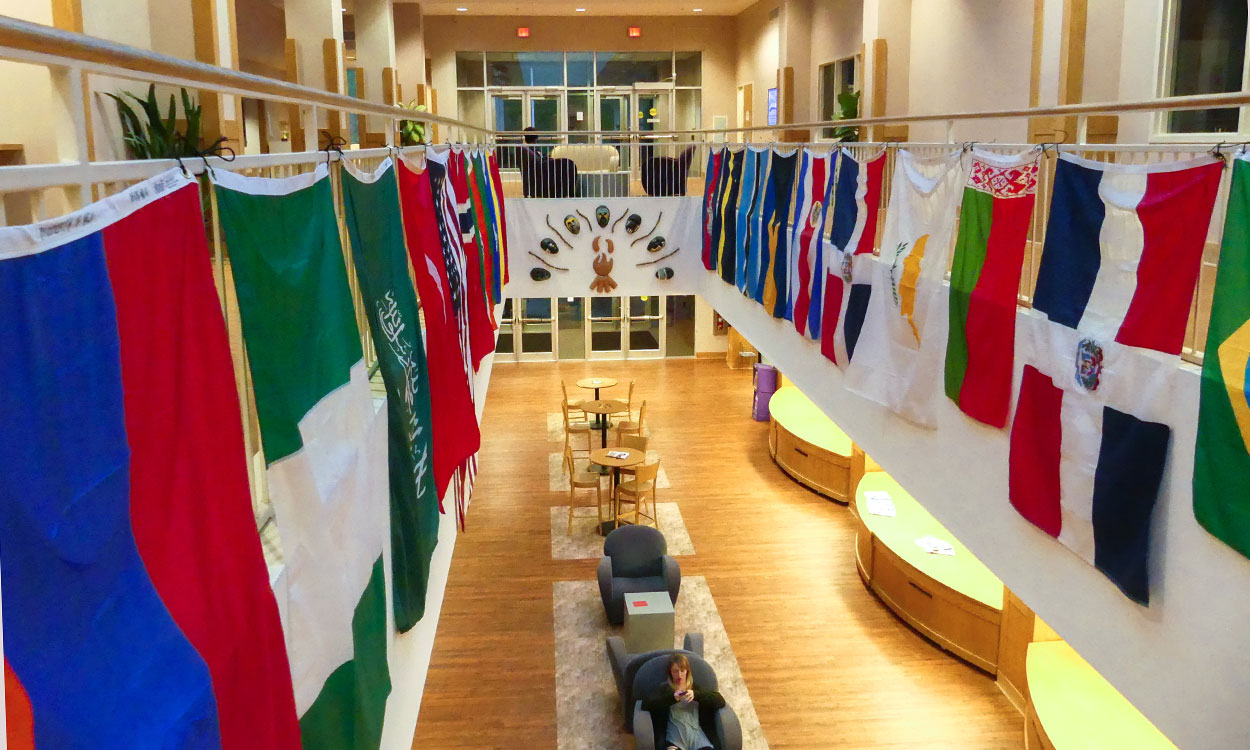U.S. Latinx Studies minor begins in fall; African-American Studies minor is next
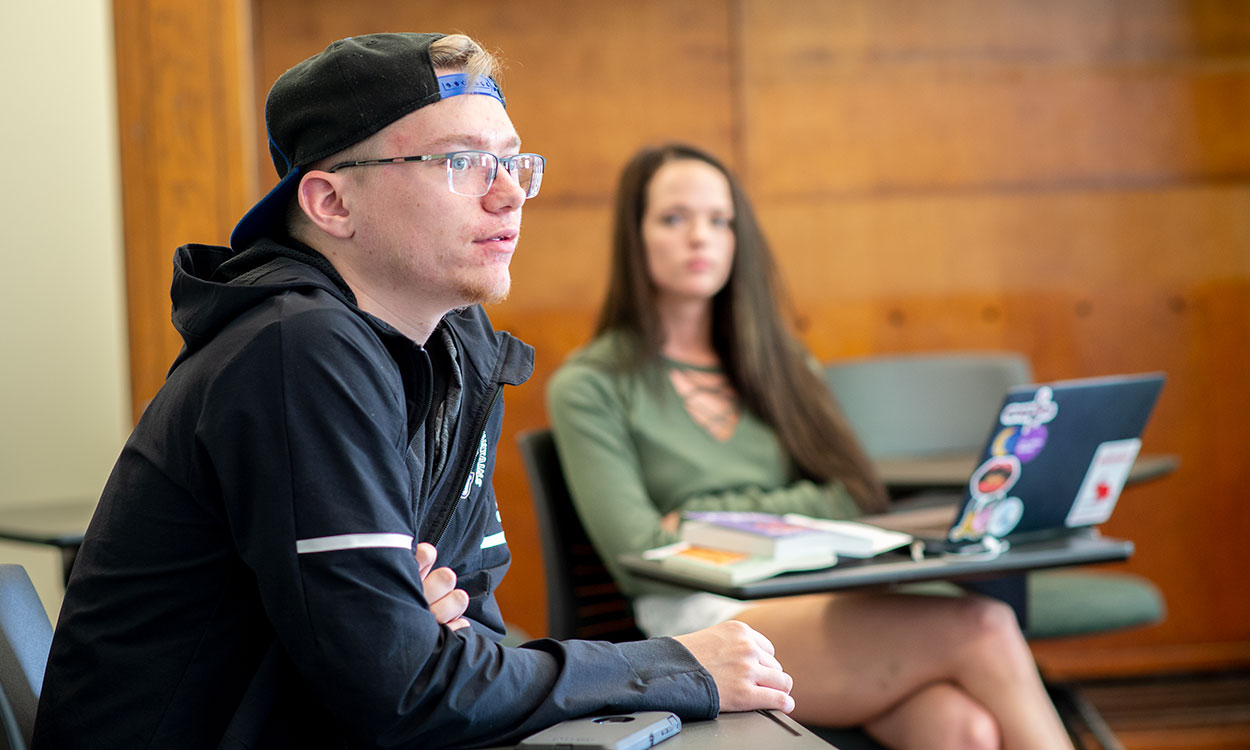
Students already have an opportunity to take Latinx-related classes, as shown here, but beginning this fall, they can participate in the new U.S. Latinx Studies minor.
One new academic minor is slated to begin this fall at Western Carolina University, and plans are underway for another to follow soon.
A U.S. Latinx Studies minor will be offered to WCU students beginning with the 2019-20 academic year. Meanwhile, a committee has been formed to explore plans to implement a form of African-American Studies minor, although the exact name of the program has yet to be determined.
Melissa Birkhofer, a lecturer in the Department of English, has been named director of the U.S. Latinx Studies minor. With the Hispanic population at WCU exploding over the last decade, Birkhofer is excited to see the minor added to serve that group of students.
“We’re super, super excited about the minor starting in the fall,” she said. “This has been a collaborative effort across the College of Arts and Sciences, but really across the university. I’ve had lots of help and lots of people in my corner trying to get this through.
“Latinx students now make up the largest minority on campus. National and regional and state trends project that that’s going to continue. If we’re going to have that many students on campus, then I think it’s really important that they get reflected in the curriculum. That was the impetus.”
In 2010, Hispanic students made up 1.4 percent (105) of the WCU undergraduate population, Birkhofer said. By 2018, that number had risen to 6.98 percent (700 students).
Last fall, WCU offered its first Latinx Learning Community, which was taught by Birkhofer, English associate professor Paul Worley and associate professor of Spanish Lori Oxford. The students involved curated and created materials for the photo-essay exhibit “We Were Migrants,” learned about immigration, and discussed Latinx people in North Carolina and the South.
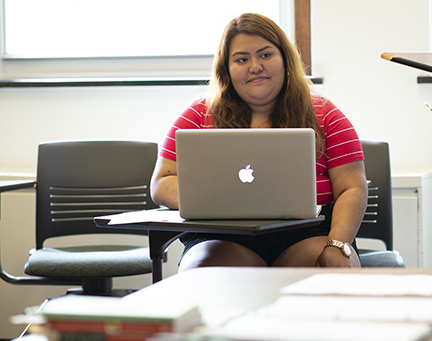
Hispanic students are now the largest minority group on the WCU campus. In 2018, they made up nearly 7 percent of the undergraduate population.
Birkhofer is expecting about 30 students initially to be enrolled in the U.S. Latinx Studies minor, including those who are currently enrolled in approved programs. The minor will consist of six courses. Each student will be required to take “The Introduction to U.S. Latinx Studies.” The remaining five courses can come from a variety of departments, Birkhofer said, including history, sociology, world languages, English and education.
“We have a wide variety of classes, and that gives students an opportunity to tailor the minor to their particular career path,” Birkhofer said. “It’s a nice mix.”
The minor is open to all students and there is no language requirement.
Last fall, Richard Starnes, dean of the College of Arts and Sciences, formed a committee to explore how to implement an African-American Studies minor. The impetus stemmed from a list of expectations that a group of African-American students presented the WCU administration to help improve the climate for diversity and inclusion on campus after several racial incidents occurred in 2018.
Two students who helped organize that group, which united under the hashtag “WheeMatter," were Antonio Oakley and Tenae Turner. Among their expectations was adding an African-American Studies minor.
“Having a minor that allows you to learn about the education part of your history is important and is critical to your college experience,” said Oakley, a senior computer information systems major from Charlotte. “We come to college with the expectations to learn about our studies, but we also come to expand our knowledge about things that we’re not normally seeing every day. I think the interest in the African-American minor and the Latinx minor is one of those things to allow your underrepresented students to have that opportunity.”
Elizabeth McRae, who holds WCU’s Creighton Sossomon Professorship in History, and Menune Mwaniki, assistant professor in the Anthropology and Sociology Department, are the committee’s co-chairs. The committee is comprised of about 10 faculty members and student representative Ashani Smith, who currently is doing an approved program for her minor in African-American Studies.
The group has held two meetings this spring and is currently awaiting approval to search for a director this fall, McRae said.
“We’re very excited about the possibilities, but there are a host of challenges to build a high-quality program,” McRae said. “That is our goal, to build a high-quality program for the students. We felt like without a director, we couldn’t really build a program in a way that would be high quality for the students.”
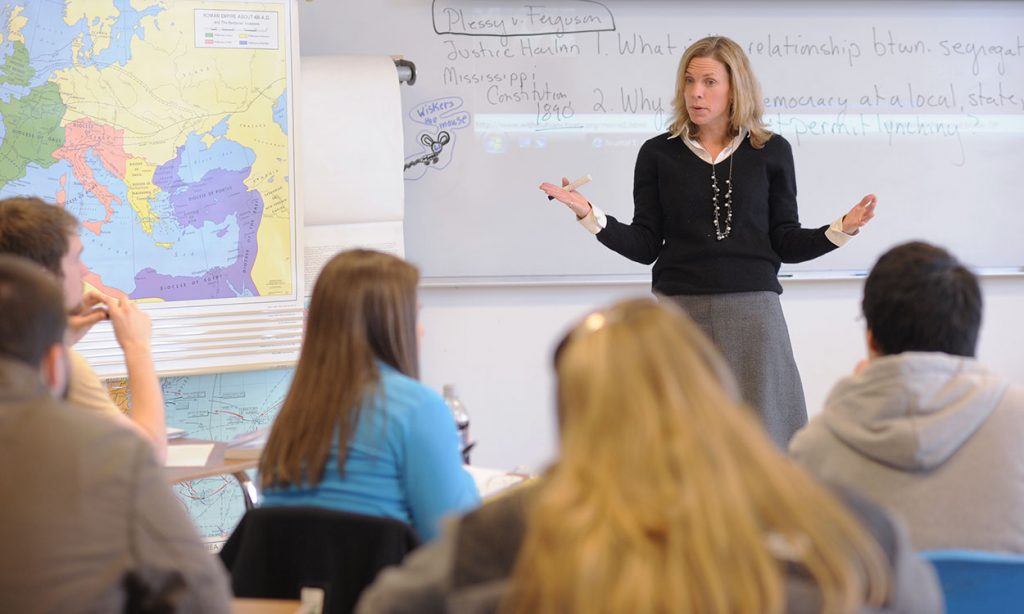
Elizabeth McRae is co-chair of the committee charged with implementing an African-American Studies minor.
McRae said part of the director’s role would be to not only enrich the course offerings currently available, but to development others across other areas, such as racial disparity in health, or fine arts courses targeted to African studies.
The committee envisions the director teaching an introductory course, much like the one offered by the U.S. Latinx Studies minor. The program would have an academic component that could recruit students from different majors and colleges, as well as a community component so students would have experiences collaborating with communities across the state, McRae said.
As for the name of the minor, McRae said the committee is currently debating whether to call it African Studies or Black Studies.
“We wanted to be able to look at the diaspora,” McRae said.
The goal is to have a director named this fall, with that person starting in the fall of 2020. That would give the university a year to develop the curriculum and recruit students into the program. The committee hopes to have about 15 students enrolled in the minor in its first year.
The committee’s research showed that WCU is the only college or university within a 100-mile radius that doesn’t offer an African-American Studies minor.
“I think it’s past time for us to do this,” McRae said. “The students brought these requests, and I think it’s pretty critically important that we listen to the students. And I think it’s pretty critically important to the university. I think the university is trying to articulate its commitment to a diverse curriculum in some other ways.”
Turner, a senior political science major from Burlington, agreed that the time has come.
“We’ve had a lot of African-American students transfer in from other schools that had a minor in African-American studies from their previous institution,” Turner said. “They get here and they aren’t able to attain that same education. It’s important that we’re offering what other institutions in our state are offering, and we’re also offering culture and history.”
Both Oakley and Turner are pleased to see several of the expectations they presented being checked off the list. Prior to the 2018-19 academic year, changes were made to the WCU Community Creed.
The first creed was changed from “I will live by high standards of personal integrity” to “I will live by high standards of academic and personal integrity” and an additional creed was added, “I will value diversity, inclusive excellence, and individual differences.”
The Faculty Senate recently endorsed the final draft of a “Community Vision for Inclusive Excellence,” which was presented by Chief Diversity Officer Ricardo Nazario-Colón and a delegated subcommittee from the Council for Inclusive Excellence.
The statement reads, “The diverse perspectives encountered at WCU are an important part of the preparation of students for roles as regional, national, and global leaders who contribute to the improvement of society. It is expected that members of the WCU community will not only coexist with those who are different from themselves, but also nurture respect and appreciation of those differences. We encourage civil discourse as a part of the learning enterprise, and as a campus we do not tolerate harassing or discriminating behavior that seeks to marginalize or demean members of our community.”
Damon Sink, chair of the Faculty Senate, said, “The Community Vision, actively put into practice, will make it clear that diversity and inclusive excellence are not just aspects of a desired campus atmosphere, but moreover form the foundation of the educational experience that is our mission to deliver.”
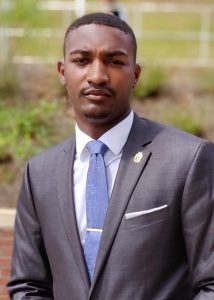
Antonio Oakley
As Oakley and Turner prepare to graduate, they said they leave with a sense of knowing that they helped leave WCU a better place than when they arrived. But with more work still to be done, they leave knowing that students behind them must continue what they started.
“I think there are some promising students on campus,” Turner said. “I remember being a freshman and a sophomore and looking towards the upperclassmen. While I wasn’t ready to say or do anything, when it became my time, I was ready. I hope that what our older peers left for us, their examples, their thoughts, their wisdom, I hope we’re able to leave that same thing for our younger peers.
“A lot of the expectations have been met,” she added. “There’s still a few that need some work, but seeing the ones that have been met be implemented on our campus, it’s been a really good thing. Some faculty and staff have taken so much initiative to make sure that they’re doing these things, and they’re doing more, and they’re doing something that’s going to be everlasting on our campus. It’s nice to know that when we come back for Homecoming in 5-10 years, we’re going to be able to talk to students about their experiences and that they can possibly be positive and we can have a strong educational program.”
Oakley would like to leave those younger peers with this advice, “I learned to always ask why, and don’t be afraid to ask questions or question anything that doesn’t make sense to you. Things can always be updated or changed. That’s the most important thing I’ve learned.”
